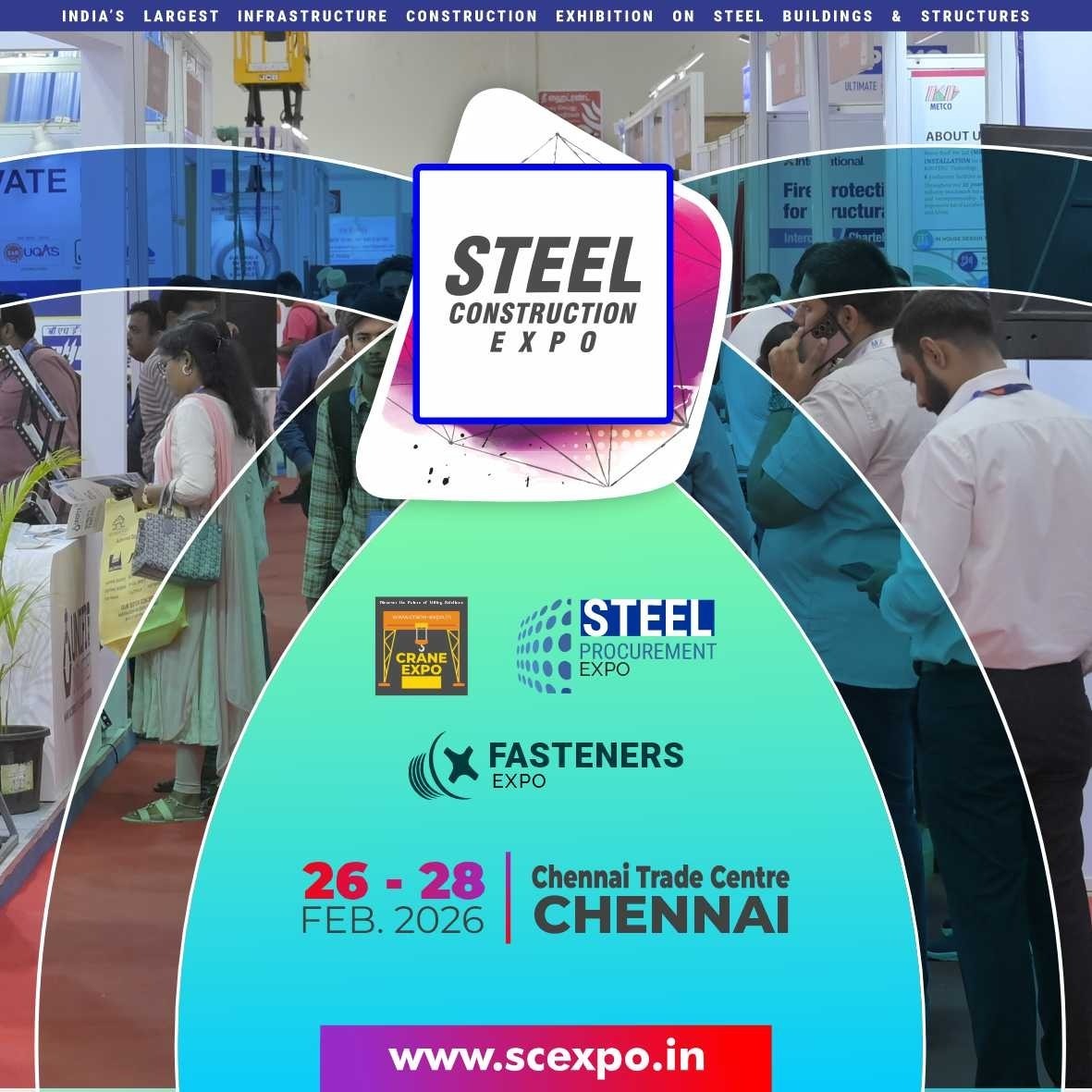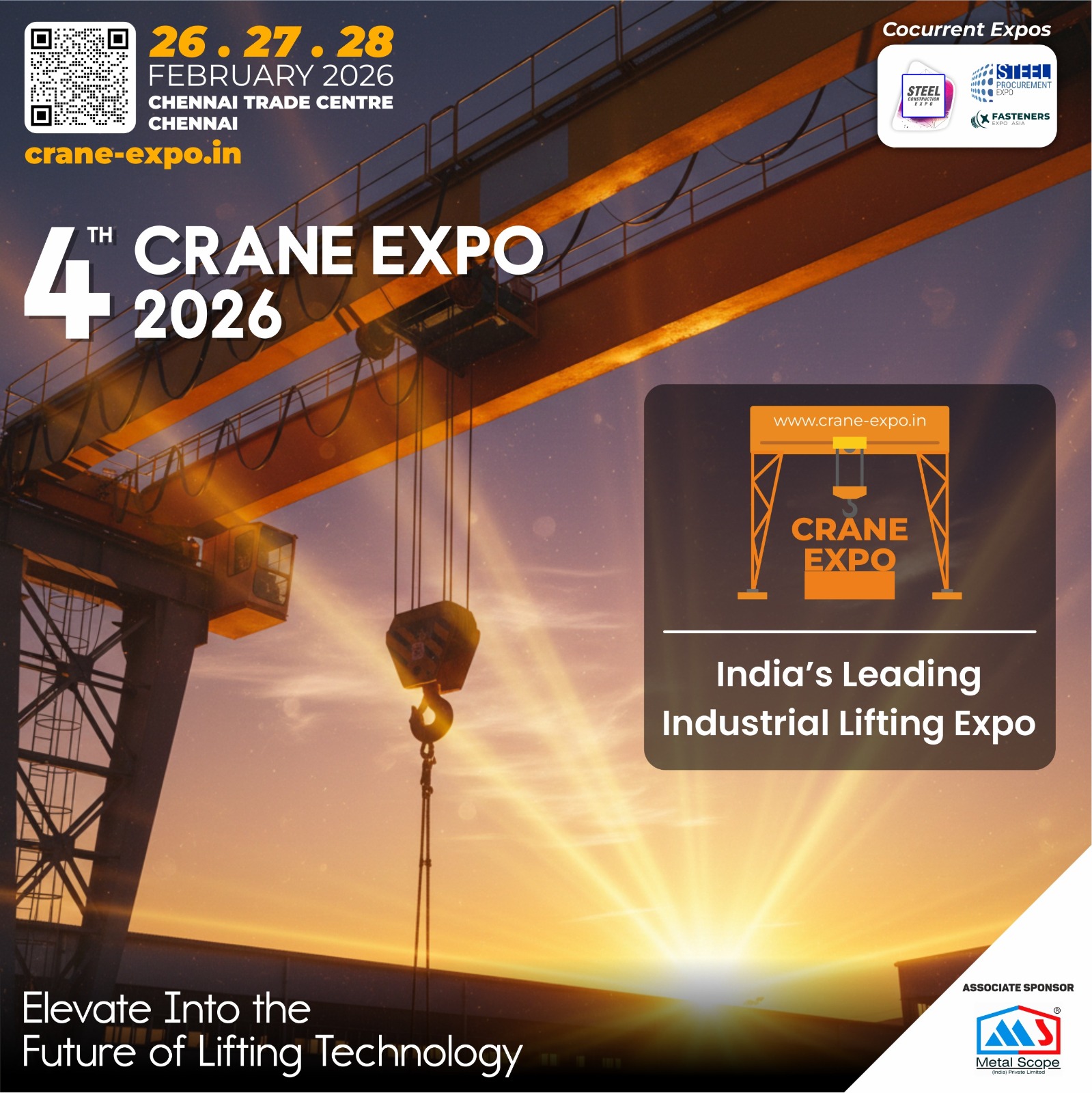Quick Facts
• Your College: CWIT, Pune; MIT, Pune; NTU, Singapore
• Total Years of Experience: 20 years
• Your Idols /Mentors: Jack Welch, JRD Tata, S Jaishankar, Shashi Tharoor
• Your Mantra for Success: Continued hard work, perseverance, dedication and passion
• You Want to be Remembered As: I don’t think so far ahead. My focus is on the present.
• Steel Projects you are currently working on: Structural engineering for one of the heaviest PEB buildings in the country, one of the widest PEB buildings in the country, mega-scale industrial buildings, multi-storied steel buildings for colleges, large spans diagrid arches, large training facility building are amongst many steel projects currently being done at our office
Your inspiration to take up engineering as a profession…
Choosing civil engineering was a natural path for me. Growing up in an environment surrounded by my father’s involvement in civil engineering, it became an integral part of my life from an early age. However, within this vast field, my interest gravitated specifically towards structural engineering. I found myself captivated by the awe-inspiring structural marvels spanning centuries in our country and around the world – from the ancient temples in South India to the magnificent forts in North India and the modern engineering wonders globally. Despite knowing that, during my graduation, structural engineering wasn’t as popular due to lower pay scales and limited opportunities, I chose passion over pay scales. Looking back, I think I chose well. Structural engineering has been deeply fulfilling.
Your learning curve from a student to a pro…
My tenure in Singapore gave me invaluable exposure to structural engineering in general and steel structures in particular. Working on construction sites during the day and pursuing a Master’s in the evening provided a crucial equilibrium between theoretical knowledge and practical application, allowing me to understand the entire process comprehensively. Juggling these responsibilities alongside independently managing daily life and finances served as a rigorous training ground, teaching me the art of meticulous life management. A 16-hour working day back then became customary, ingraining a strong work ethic within me. As they say, I got my skin in the game! These multifaceted experiences proved immeasurably beneficial when I later ventured into the realm of entrepreneurship.
The challenges you face as a structural consultant…
As our economy is growing, the magnitude of the projects is also growing each day. It is imperative to integrate proper project planning and scheduling as an inherent part of the process. While internationally, the established norm involves completing design and engineering before commencing site work, our traditional approach tends to involve rushing into the construction phase before finalising the design.
However, there’s now a noticeable shift in recognising the significance of concluding project planning and engineering before initiating actual work. This shift has led to projects being completed ahead of schedule by adopting a systematic approach, instead of hastily diving into the construction phase. Our ability to handle larger projects effectively hinges on our adeptness in managing processes intelligently throughout the project lifecycle.
If you could change one thing about the construction practices in India…
The sight of construction projects, sometimes managed by non-technical personnel at site, lacking fundamental engineering knowledge or qualification and safety awareness, deeply concerns me. This situation requires immediate rectification. Whether it involves a bungalow or a bridge, civil engineering at every level ought to be overseen exclusively by qualified engineering experts.
Furthermore, I see a considerable gap in the integration of automation and AI within our industry compared to other sectors. Automation and AI possess immense potential to streamline various aspects of our engineering operations. These can significantly enhance tasks such as engineering coordination, inventory management, quality and quantity assessments, as well as optimising fabrication and erection techniques. These technologies can also revolutionise project monitoring, and scheduling, and I believe there exist numerous other untapped applications within our field.
How do you see the adoption of rolled steel sections in India…
Rolled steel sections present significant advantages due to their decreased fabrication time and enhanced quality control when compared to plated PEB sections. Nevertheless, several industry-related issues must be addressed to fully explore the utility and cost-effectiveness of these sections.
Primarily, it’s crucial to recognise that steel is a valuable natural resource and should be used judiciously. Current rolled sections, particularly I and C sections, often employ larger thicknesses than required for specific designs, limiting the optimal use of steel.
This somewhat excessive steel consumption using rolled sections contrasts with the more efficiently engineered plated PEB sections. A potential solution to this issue could involve introducing a wider array of section ranges akin to those available in the US or Europe. Secondly, the availability of rolled sections remains a persistent concern. Certain sections that are accessible at the tender stage might not be obtainable during the construction phase. This discrepancy increases costs and hampers the widespread adoption of rolled sections in construction projects. Addressing these availability issues would significantly contribute to maximizing the usage and viability of rolled steel sections.
How has your relationship been with steel…
Fabulous! I cannot think of any other word. Steel has been an integral part of our daily operations for the last two decades. Whenever we have encountered structural challenges, whether it’s handling large spans, expediting construction, or ensuring cost efficiency, steel has consistently proven itself as a dependable ally. Compared to concrete, the environmental impact of utilising steel in construction is significantly lower. It is time we embraced steel in multi-storied building construction. Accelerated completion schedules using steel can pave the way for early revenues, a factor crucial for cost assessments. Steel also offers great salvage value at the end of the project life cycle.
An international steel-specific project that inspires you the most…
Globally, numerous captivating steel structures exist, yet I believe it’s time for us to look inwards. Within our country, several remarkable and awe-inspiring construction projects are underway. The utilisation of steel in projects like the Bandra-Worli Sea Link in Mumbai, the Atal Setu in Goa, the Statue of Unity and the Motera Stadium in Gujarat showcases incredible feats of engineering and construction. I am bullish. We can anticipate witnessing a multitude of remarkable steel projects materialising in the near future within our country. The potential for innovative and impactful steel-based constructions holds immense promise, contributing further to our nation’s infrastructure and architectural achievements.
Your best work in steel so far…
Each project we undertake receives our utmost dedication. Every venture holds its distinct essence and warrants the requisite time and focus for successful completion. Among our accomplished projects, one that stands out prominently is the intricate ship assembly workshop designed for Goa Shipyard Ltd. This industrial building towers nearly 50 m above ground level, situated at shore, comprising of 160 MT cranes operating at almost 40 m height. Employing a hybrid structural design, we utilised both plated and rolled sections, creating pre-engineered laced columns and trusses. This structural system proved advantageous, effectively addressing stringent deflection limitations and erection challenges imposed by the building’s considerable height. Notably, this building is part of our nation’s initiative to indigenously manufacture defence vessels and maintain ships – a project of immense prestige for all involved stakeholders.
How do you update yourself with the changing time…
Core fundamental principles in structural engineering remain crucial amidst the constantly evolving work methodologies. Using the latest structural engineering software is essential alongside ensuring seamless integration of engineering digital data across architecture and various disciplines of engineering involved in the project, for seamless project coherence.
Collaborative brainstorming sessions involving field experts and knowledge exchange are pivotal in enabling our community to acquire the necessary proficiency to manage the escalating scale of contemporary projects. Our industry has embraced online platforms for global connectivity, facilitating interactions with experts worldwide. Educational institutions play a vital role by consistently updating their curriculum to encompass the latest trends in the construction industry, thereby better preparing our future engineers. There’s value in learning from the construction practices of South-East Asian countries as well.




